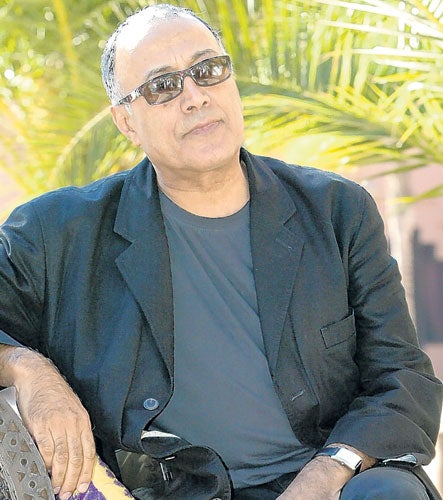ENO director's boycott shines light on British visa scandal
Iranian film-maker is latest artist to accuse British embassies of obstructive behaviour

When it was announced that the renowned Iranian film director Abbas Kiarostami was to direct a production of Mozart's Cosi Fan Tutte in London, it was anticipated to be one of the highlights of English National Opera's season.
Mr Kiarostami, 68, a man credited with being the father of modern Iranian cinema, was also due to lecture at the British Film Institute, where he already holds a fellowship.
But yesterday it emerged that he became so fed up with the disrespectful and time-consuming way he was treated when applying to the British embassy for a temporary work visa, he gave up as a matter of principle. The opera is due to open in three weeks. The ENO said that the Iranian director's associate director Elaine Tyler-Hall would take over.
Mr Kiarostami, who has been to Britain on many occasions and insists that he has no problem visiting France and Italy, said he had found the new system "unduly time-consuming and hugely complicated". The Ambassador in Tehran, Simon Gass, tried to intervene at the last minute but by that stage Mr Kiarostami had lost the will to continue.
"[The ENO] respected my position and my principles in spite of the obvious fact that it was putting them in a very precarious and disagreeable position. I have to confess that this gives me hope – the world is still a liveable place malgré tout," he said from his home in Tehran.
"It is very sad that such a widely admired artist as Abbas will not be coming to London," said John Berry, artistic director of the ENO. A spokesman for the BFI, which is releasing Mr Kiarostami's latest film Shirin next month, added: "It is regrettable when somebody of his stature is made to feel like his presence in this country is not desirable. It is such a great shame and a very sad day for culture in Britain when one of the world's greatest artists of his time is not able to come and present his work."
While Mr Kiarostami's case has proved the most high profile, he is just the tip of an iceberg of artists, academics and business people who feel they have been effectively snubbed by British embassies abroad.
Many feel frustrated by the new visas which require all entrants to provide fingerprints and travel for interviews with British embassy staff.
The Independent has received countless letters from British residents complaining that legitimate attempts to bring colleagues or friends into the UK have been greeted by a tortuous process and often what appears to have been an arbitrary refusal with no redress.
"It is not just rudeness but there is a general assumption that if you are from a poorer country, you will overstay. It is insulting to people who have no reason to stay," said Kahiye Alim, managing partner of the immigration specialists Talk Visa LLP.
Keith Best, of the Immigration Law Advisory Service, said it had become harder to get visas with the introduction of a points system and the fact that people now had to travel to distant regional centres to apply. "I am afraid we perform very, very poorly compared to others. My understanding is you can go to the US embassy in the morning and walk out that day with a student visa."
A spokesman for the UK Border Agency said that fingerprint visas were a "crucial part" of securing the border and that the system was strict but "also speedy".
"Fingerprint visas mean we can check everyone who wants to come to the UK against immigration and crime databases. These checks are a crucial part of securing the border and they are not something we will apologise for – they have already detected at least 5,000 false identities."
Letters to the editor: How our readers raised the alarm
Dr Jan Culik, a university lecturer, whose daughter is living in St Petersburg, said her Russian partner was initially refused a tourist visa despite providing countless documents and financial assurances.
"You may conclude that no-one in the UK is interested in how arrogantly and inefficiently the British diplomatic service behaves to non-British citizens. Even if we accept thiese kind of double standards, one thing is surely unacceptable and newsworthy – the British diplomatic service is grossly inconveniencing UK citizens themselves who, when they live abroad, have contacts and need to take them to the UK for a visit. It is absolutely incomprehensible why the UK authorities are behaving like a police state."
Dr Nick Maurice, director of Building Understanding Through International Links for Development, said its work was being hampered by the attitude of staff in visa offices.
"Our work is increasingly in jeopardy because of the difficulties our partners are facing getting into the United Kingdom to share their lives, their faiths, their skills and their cultures with young people in our schools and with us in our homes and communities."*Margaret Fox, whose son is living in Shanghai, said his Chinese wife was turned down twice for a visitor's visa and treated with contempt.
"We live in a caring, law-abiding community where your word is still your bond and it is a shock when your family is ignored by an arrogant government department which should be trying to serve your wishes with consideration and respect."
Join our commenting forum
Join thought-provoking conversations, follow other Independent readers and see their replies
Comments
Bookmark popover
Removed from bookmarks